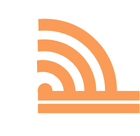By Sofia Baldonado

With the rise of misinformation amidst the digital surge in the COVID-19 pandemic, Dennis Gumboc, a Microsoft-certified educator and innovative educator expert, shed light on the discussion of various uncommon fact-based search engines made available for students and educators as an alternative to Google.
In a webinar event on Saturday, Nov. 20 titled, “CLEAR: Concrete Learning and Enhanced Academic Resources Amidst COVID-19”, guest speaker Gumboc explained why he discourages the mere dependence of users on the popular search engine, Google when searching facts amidst pandemic.
“If you will [search] in Google, you will find [the] information that we (users) impose on the internet, but we are not pretty sure if [the] information [there] is already fact-checked or already evaluated by the experts,” Gumboc stressed.
As an alternative to Google due to its broad search algorithm, a few of the search engines promoted by Gumboc included Eric for peer-reviewed academic journal articles; Frontiers for COVID-19 records and studies; and Microsoft Academics for scholar information that underwent expert-led verification.
“If you find it difficult to [look for] different reliable information on the internet since there [is so much] fake news spreading all over it, we [should] have these [search engines].” He added, “Reading is the best solution for [misinformation], but reading without comprehension is nonsense. Always check the sources of information before believing it.”
In light of the attendees’ feedback, student Earl Belen shared his take on why he found the introduced search engines valuable.
“If I use the [mentioned] reliable websites, I can quickly ensure that my sources are fact-checked by panelists and peer-evaluated by experts without having to tediously scroll through the results in Google just to find a reliable source,” Belen explained.
Moreover, Associate Dean Evelyn Perez shared how the event became beneficial for her, underlining her advice to students about combating misinformation amidst the pandemic.
“As an educator and a student in a doctoral program, I was reviewed about the options available for me to research online.” Perez stated.
“They (students) must make it a habit to research independently and [recognize] the hierarchy of sources. They need to be sharp and analytical since to do so is a reflection of their academic training.”
A 2021 study in Statistica Research Department found that 36.2% of the 23,483 worldwide Generation Z and Millennials respondents depend on search engines as sources of COVID-19 news and information.
